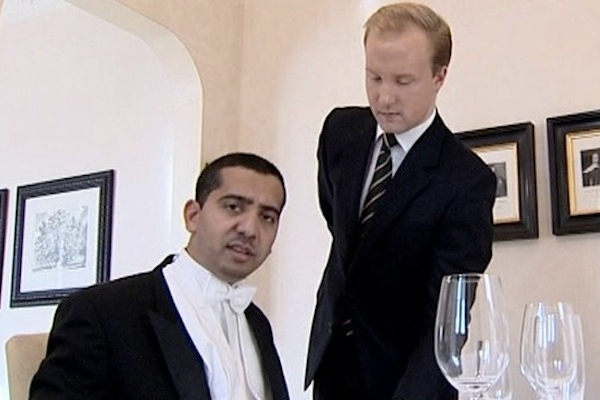
Forgive me for returning in this column to Diego Garcia. The issue is too important to shrug aside: important not only in itself, in defence terms and in the immediate, but in the longer-term lesson this has for Britain in our relationship with the United States; and there is a new rumour to report, and more to say.
America is having a laugh. Washington – not China, not the International Court of Justice, not Mauritius and not particularly Donald Trump – is the problem here, and the author of Britain’s present difficulty. America is hiding behind our skirts and leaving Britain to face the flak. But it is they, not we, who need the territory and it is they who should pay for it.
A fortnight ago I wrote here about the impasse with Mauritius, the United States and the International Court of Justice (ICJ) and suggested a way through: so obvious that it seemed surprising nobody had thought of it. So was there a catch? It turns out there was. We’ll come to that in a moment.
This column’s suggestion was simple. Give the British Indian Ocean Territory (BIOT) back to Mauritius on the understanding that Mauritius will sell it to the United States. The islands are more than a thousand miles from Mauritius and uninhabited bar the US/British base on Diego Garcia. So we’re talking about real estate, not human rights – but real estate of immense value to Washington and little use to Mauritius or indeed to us. For a base of eye-watering importance to the Pentagon, Mauritius should be able to get an eye-watering price for the BIOT. Britain could then walk away, having done our duty by the ICJ in relinquishing ownership.
Be clear: the ICJ ruling was preposterous, with judges from such beacons of democracy as Russia, China, Lebanon, Somalia, Uganda and Brazil ganging up on us under the pretence of ‘decolonisation’.
Undoubtedly Britain’s shameful treatment of the original Chagossians on Diego Garcia will also have weighed with the court. Back in the 1960s, because Washington wanted a base with no native population, Harold Wilson’s government simply cleared the islanders out, dumping them mostly on to Mauritius.
Washington has piggy-backed for free on to a relic of the British Empire for more than half a century
A judicial ruling is a judicial ruling, and Britain and the US were instrumental in setting up the ICJ. Sir Keir Starmer is (perhaps rightly) criticised for obsessive legalism in his political philosophy, and his internationalism is starting to look sadly out-of-date; but he, his foreign secretary David Lammy and their Tory predecessors should not be faulted for taking the ICJ ruling seriously and searching for a way through.
A fortnight ago I suggested (without recommending it) that simply ignoring the 2019 ICJ ruling was an option. Since then I’ve enquired further, and I’m now less sure. Though only advisory, it will lead (if ignored, and as our former ambassador in Washington pointed out in a letter to the Times on Monday) to a formal judgment against us. Denial of our ownership of the islands would include their territorial waters and airspace. Sovereignty in all directions is vital to a military base packed with sensitive and secret communications and interception equipment. Flights, air traffic control, provisioning, communications… it’s easy to see how the loss of international recognition for our ownership of the islands and their surrounding seas would complicate American use of the base, and embolden China (with support from the developing world) to test the water.
It’s been pointed out to me that big overseas military bases need robust foundations in international law. Imagine, for example, that the status of Britain’s 98-square-mile sovereign base at Akrotiri in our former colony of Cyprus were to be challenged by the anti-colonial brigade. Or consider our ownership of Ascension Island in the Atlantic where, under the UK’s umbrella, the US maintains a hugely important base – without which we might not have been able to retake the Falkland Islands. In both examples the legal underpinning to sovereignty is relatively secure. So (I’ve been convinced) the case for securing an unchallenged basis, de jure as well as de facto, for the American base is overwhelming: stronger than media critics of Jonathan Powell (who has led the framing of the British position) have acknowledged.
But what now? The Americans are deeply unsettled by our proposed leaseback arrangement with a China-friendly non-aligned nation. Our government is under fire at home for trying to give away an overseas possession in exchange for only a massive bill – some £9 billion – and a 99-year lease. And Mauritius wants more money, or earlier money, or a shorter lease, or all three. That a new government in Port Louis is so ready to renege on what had been agreed with its predecessor (who themselves reneged on a treaty one of their own predecessor governments had signed) inspires little confidence in the long-term security of any new lease. The Americans are right about that.

And this brings me back to my earlier suggestion. Cede the BIOT to Mauritius, in order for Mauritius to sell the territory to the United States. Why not? Here, I report a disturbing whisper.
Apparently Washington doesn’t want to pay. After all, they only ever gave us a peppercorn rent for their Diego Garcia base. In exchange for our dirty deed of clearing the island of residents for their use, they offered Wilson a discount on the Polaris nuclear missiles America sold to us in 1968. Since then, they’ve had a free ride. Now they expect another.
In short, Washington has piggy-backed for free on to a relic of the British Empire for more than half a century. It isn’t of serious military use to us; Britain has been preparing to pay some £9 billion so Washington can continue the ride for another 99 years – and still the Americans are not satisfied. Well, Trump is not ill-disposed to acquiring new territory. Here then is some palm-fringed real estate for which he may care to bid. And leave us out of it.








Comments